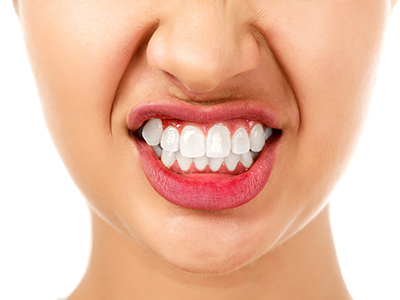More than 10 million Americans suffer from TMJ (temporomandibular joint) disorder (TMD), which is a result of chronic stress on the TMJ. Many cases of TMD are a result of a misaligned bite or teeth grinding (bruxism). However, there are several other lesser known causes of TMD. Kois Dentistry discusses some of these surprising causes in this blog post.
Drug Use
Numerous studies have found that amphetamines like cocaine can lead to clenching and grinding of the teeth. Continuous grinding can put stress on the muscles and ligaments that control TMJ functionality.
Poor Posture
Poor posture and consistently slouching can cause the lower jaw to move forward, causing it to misalign with the upper jaw. Bad posture can also aggravate the jaw, which can lead to a slew of TMD symptoms including earaches, pain and soreness.
Stress
Researchers have identified stress and anxiety as primary causes of teeth grinding. Grinding or clenching your teeth can cause wear and tear on your teeth, as well as jaw misalignment and pain. If you are experiencing chronic jaw and mouth pain due to teeth grinding, try to minimize your stress levels. Meditating and exercising can help reduce stress. It is also wise to schedule an appointment with your dentist to determine whether you are in need of any dental work due to teeth grinding.
Super Sizing It
Upgrading your meal to a large or extra-large may end up costing you more than just a few cents and calories. Opening your mouth too wide when biting down on food can put stress on your jaw muscles and ligaments; so much, in fact, that it leads to, or worsens, TMD symptoms. If you have problems opening your mouth wide or experience pain when chewing, try cutting your food into smaller, more manageable bites.
How to Treat TMD
Kois Dentistry offers several treatment options, both surgical and non-surgical, to help alleviate TMD symptoms. Treatment options include:
- Prescription medicine to alleviate muscle pain, swelling and soreness
- Muscle relaxants to loosen tight jaw muscles
- Electrical nerve stimulation to relax the jaw joint and facial muscles and minimize pain
- Trigger-point injections, which involve injecting pain medicine or an anesthetic into the facial muscles to relieve pain
- Surgery
The trusted dentists at Kois Dentistry can determine the best treatment option for you following a thorough evaluation of your symptoms. To schedule an appointment with us, please call (206) 515-9500 today.

